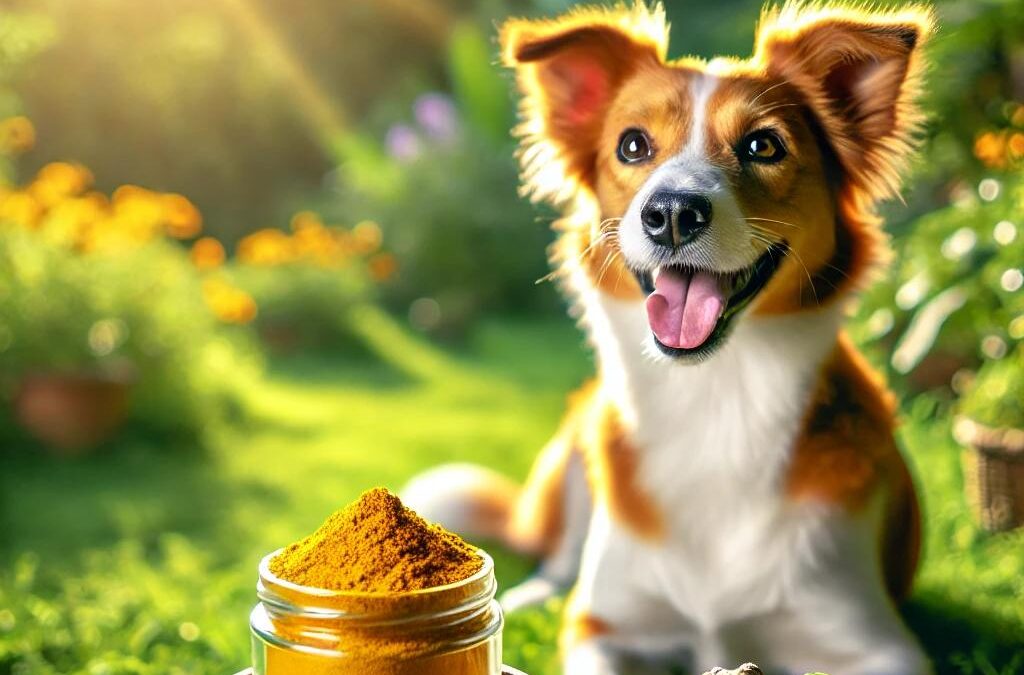
에 의해 TCMVET | 2024년 9월 13일 | 반려동물 한약
시이타케버섯(렌티눌라 에도데스)는 가장 널리 사용되는 식용 버섯 중 하나로, 풍부한 맛과 인상적인 영양 성분으로 인해 가치가 있습니다. 너비가 2인치에서 5인치에 이르는 이 버섯은 밝은 갈색과 어두운 갈색의 음영으로 전 세계 요리에 깊이를 더합니다. 동아시아가 원산지인 시이타케 버섯은 많은 주방의 필수 재료가 되었지만, 그 효능은 맛 그 이상입니다. 사실, 건강과 웰빙을 증진하기 위해 수세기 동안 전통 의학에서 사용되어 왔습니다.
1. 시이타케 버섯의 역사와 유래
"시이타케"라는 이름은 버섯이 자연적으로 자라는 "시"로 알려진 일본의 카스타노프시스 나무와 일본어로 버섯을 의미하는 "타케"에서 유래했습니다. 시이타케 버섯은 원래 썩은 나무에서 자라는 야생에서 발견되었지만, 지금은 일본, 중국, 싱가포르, 캐나다, 미국을 포함한 다양한 국가에서 널리 재배되고 있습니다. 놀랍게도, 한 통나무에서 수년간 버섯을 생산할 수 있어 집에서 재배하기에 지속 가능한 선택이 되었습니다.
2. 전통의학에서의 시이타케버섯
시이타케 버섯은 항바이러스, 항균, 항진균 특성으로 인해 오랫동안 전통 의학에 통합되었습니다. 이 버섯은 비타민, 미네랄, 섬유질, 효소 및 필수 지방산이 가득한 영양소의 보고입니다. 또한 고기에서 발견되는 것과 동일한 아미노산을 많이 함유하고 있어 식물성 식단에 좋은 선택입니다. 이러한 특성은 버섯을 어떻게 조리하든, 볶든, 말리든 상관없이 그대로 유지됩니다.
전통 의학에서 시이타케 버섯은 종종 면역 체계를 강화하는 데 사용되며, 특히 감기나 독감과 같은 질병에 효과적입니다. 전반적인 건강을 개선하는 능력으로 인해 천연 요법에서 중요한 자리를 차지했습니다.
3. 개를 위한 시이타케 버섯
시이타케 버섯은 인간에게 다양한 건강상의 이점을 제공하기 때문에, 이제 개를 위한 건강 보충제로 인기를 얻고 있는 것은 놀라운 일이 아닙니다. 시이타케 버섯은 면역 체계를 강화하는 데 도움이 되는 개 보충제에 일반적으로 사용되지만, 그 장점은 거기서 끝나지 않습니다. 풍부한 영양 성분을 지닌 시이타케 버섯은 면역 강화에서 소화 건강 증진에 이르기까지 개 건강의 여러 영역을 지원할 수 있습니다.
개에게 시이타케 버섯의 동일한 유익한 특성(항바이러스, 항균, 항진균)은 다양한 질병으로부터 보호하는 데 도움이 될 수 있습니다. 또한, 이 버섯에서 발견되는 높은 수준의 항산화제는 염증을 줄이고, 심장 건강을 지원하며, 전반적인 활력을 개선할 수 있습니다.
4. 개 식단에 시이타케 버섯을 안전하게 통합하는 방법
시이타케 버섯은 반려견의 식단에 귀중한 추가 식품이 될 수 있지만, 안전하게 조리되었는지 확인하는 것이 중요합니다. 반려견에게 버섯을 먹이기 전에 항상 조리해야 합니다. 생버섯은 반려견이 소화하기 어려울 수 있습니다. 시이타케 버섯을 정기적인 보충제로 추가하는 것을 고려하고 있다면, 특히 반려견에게 기존 건강 문제가 있는 경우 수의사와 상의하여 지침을 받으십시오.
시이타케 버섯은 사람과 개 모두에게 인상적인 건강상의 이점을 제공하는 다재다능하고 영양이 풍부한 음식입니다. 면역 기능 강화에서 전반적인 건강 증진에 이르기까지, 이 슈퍼푸드는 보충제와 천연 요법에서 인기 있는 재료가 되었습니다. 풍부한 영양 성분과 약효 성분을 지닌 시이타케 버섯은 건강한 라이프스타일에 귀중한 추가 요소입니다.

에 의해 TCMVET | 2024년 9월 10일 | 반려동물 한약
전통 의학에서 흔히 사용되는 황금빛 향신료인 강황은 개 암을 예방하고 치료하는 데 잠재적인 역할로 인해 현대 수의학에서 인기를 얻고 있습니다. 강황의 활성 성분인 커큐민은 항염, 항산화 및 항암 특성에 대해 광범위하게 연구되었습니다. 인간의 암 연구에 오랫동안 사용되어 왔지만 최근 연구에서는 개, 특히 다양한 형태의 개 암과 싸우는 데 유망한 효과가 입증되었습니다.
개 암 치료에서의 커큐민의 힘
커큐민은 심황의 생물학적 활성 화합물로, 여러 세포 신호 전달 경로를 조절하여 작용합니다. 이를 통해 종양 성장, 전이(암의 확산), 암세포의 생존을 포함한 암 발달의 여러 측면을 표적으로 삼을 수 있습니다. 일부 기존 암 치료법과 달리 커큐민은 다양한 암 유형에 영향을 줄 수 있어 개에서 암 예방 및 지원을 위한 다재다능한 옵션입니다.
대형견에서 흔한 뼈암의 일종인 골육종을 앓은 개에 초점을 맞춘 연구에서 커큐민이 종양 성장을 상당히 줄이고 전이를 제한할 수 있다는 사실이 밝혀졌습니다. 골육종은 악명 높게 공격적이어서 종종 사지 절단과 화학 요법이 필요하지만, 이 연구 결과에 따르면 커큐민이 이 질병에 대한 추가 방어선 역할을 할 수 있습니다. 림프종과 비만세포 종양과 같은 다른 개 암도 커큐민의 항암 특성으로부터 이익을 얻을 수 있습니다.
암 예방을 위한 항염 효과
인간과 개 모두에서 암 발병에 가장 큰 영향을 미치는 요인 중 하나는 만성 염증입니다. 지속적인 염증은 시간이 지남에 따라 암세포 형성으로 이어질 수 있습니다. 커큐민의 강력한 항염 특성은 신체 전체의 염증을 줄이는 데 도움이 되어 암 발병 위험을 낮춥니다.
항염 효과 외에도 커큐민은 강력한 항산화제로, 산화 스트레스(암과 관련된 또 다른 요인)와 싸우는 데 도움이 됩니다. 산화 스트레스는 세포를 손상시킬 수 있는 불안정한 분자인 자유 라디칼이 신체에 축적될 때 발생합니다. 커큐민은 이러한 자유 라디칼을 중화하여 세포 손상과 암으로 이어질 수 있는 돌연변이를 예방합니다.
강황의 안전 프로필 및 수의학적 권장 사항
강황의 가장 큰 장점 중 하나는 개에게 우수한 안전성 프로필입니다. 많은 암 치료법이 심각한 부작용을 일으킬 수 있지만, 강황은 일반적으로 적절한 용량으로 사용하면 개에게 잘 견딥니다. 이는 반려견의 암 예방 또는 치료 계획을 보완하고자 하는 애완동물 주인에게 접근 가능한 옵션입니다.
그러나 안전성에도 불구하고, 반려견의 식단에 심황을 추가하기 전에 수의사와 상의하는 것이 중요합니다. 복용량이 중요하며 심황은 혈액 응고 방지제 및 항염제와 같은 특정 약물과 상호 작용할 수 있습니다. 수의사는 반려견의 크기, 품종 및 건강 상태에 적합한 심황 양을 안내하여 안전하고 효과적으로 투여되도록 할 수 있습니다.
강아지 식단에 강황을 통합하는 방법
강아지의 식단에 강황을 통합하는 것은 음식에 소량의 강황 가루를 첨가하는 것만큼 간단할 수 있습니다. 그러나 커큐민만으로는 신체에 쉽게 흡수되지 않으므로 커큐민 흡수를 최대 2000%까지 향상시키는 성분인 피페린이 포함된 검은 후추와 결합하는 것이 필수적입니다.
일부 애완동물 주인은 암 예방을 지원하도록 설계된 쿠르쿠민과 기타 보완 성분이 포함된 기성품 보충제를 선택합니다. 이러한 보충제는 종종 캡슐, 씹는 것 또는 분말과 같이 투여하기 쉬운 형태로 제공되지만, 수의사가 승인한 고품질 제품을 선택하는 것이 필수적입니다.
개를 위한 강황의 다른 건강상의 이점
암 예방 및 치료에서의 잠재적 역할 외에도, 강황은 개에게 수많은 다른 건강상의 이점을 제공합니다. 여기에는 다음이 포함됩니다.
- 관절 건강: 커큐민의 항염 특성은 관절염이나 관절 통증을 겪는 개에게 특히 유용하여 불편함을 완화하고 운동성을 개선하는 데 도움이 됩니다.
- 소화 건강: 강황은 장의 염증을 줄이고, 영양소 흡수를 촉진하며, 가스와 복부 팽창과 같은 위장 문제를 완화하여 건강한 소화를 돕습니다.
- 심장 건강: 강황의 항산화 특성은 산화 스트레스를 줄이고 건강한 혈액 순환을 지원하여 심장을 보호하는 데 도움이 됩니다.
- 면역 지원: 커큐민은 면역 체계를 강화하여 개가 감염이나 암 위험에 영향을 줄 수 있는 다른 건강 문제를 막는 데 도움이 됩니다.
강력한 항염 및 항암 특성을 지닌 강황은 개에서 암 예방 및 치료에 유망한 자연적 접근 방식을 제공합니다. 활성 화합물인 커큐민은 종양 성장을 줄이고, 암 진행을 늦추고, 전반적인 건강을 지원하는 데 상당한 잠재력을 보였습니다. 일반적으로 개에게 안전하지만 올바른 복용량을 보장하고 약물과의 잠재적 상호 작용을 방지하기 위해 개의 일상 생활에 강황을 통합하기 전에 수의사와 상담하는 것이 필수적입니다.
반려견의 식단에 강황을 추가하면 암 예방에 도움이 될 뿐만 아니라 관절, 소화, 심장 건강이 향상되어 삶의 질이 향상될 수도 있습니다.

에 의해 TCMVET | 2024년 9월 7일 | 반려동물 한약
전통 중의학에서 잘 알려진 약초인 황기(Astragalus membranaceus)는 광범위한 건강상의 이점으로 인기를 얻었으며, 특히 면역 체계를 강화하는 데 효과적입니다. 공격적이고 종종 치명적인 암인 혈관육종(HSA)을 앓고 있는 개에게 황기는 보조적 치료법으로서 잠재력을 제공합니다. 면역 조절, 항산화, 항염증 및 항종양 특성으로 인해 개의 전반적인 건강과 삶의 질을 향상시키는 유망한 천연 치료제입니다.
아스트라갈루스란 무엇인가?
황기는 동아시아 원산의 다년생 식물이며, 그 뿌리는 수세기 동안 전통 의학에서 다양한 질병을 치료하는 데 사용되었습니다. 면역 강화 특성으로 알려진 황기는 질병에 대한 신체의 방어 메커니즘을 강화하고 전반적인 웰빙을 개선하는 데 사용됩니다. 면역 체계를 지원하는 잠재력은 혈관육종과 같은 강력한 면역 반응이 중요한 질병과 싸우는 개에게 특히 귀중합니다.
개에 대한 황기의 면역 조절 효과
Astragalus의 주요 이점 중 하나는 다음과 같습니다. 면역 조절 효과. 혈관육종은 개의 면역 체계를 약화시켜 감염에 더 취약하게 만들고 질병과 싸우는 능력을 감소시킵니다. 황기는 면역 체계를 자극하고 백혈구 생성을 촉진하며 신체의 종양 성장에 대항하는 능력을 증가시켜 작용합니다. 이러한 면역 지원은 HSA가 있는 개에게 매우 중요한데, 전반적인 회복력을 강화하고 질병의 진행을 늦추는 데 도움이 되기 때문입니다.
황기의 항산화 특성
신체의 자유 라디칼과 항산화제 간의 불균형으로 인해 발생하는 산화 스트레스는 암의 진행을 가속화할 수 있습니다. 황기에는 다음이 풍부합니다. 항산화제, 자유 라디칼을 중화하고 산화 손상을 줄입니다. 산화 스트레스에 맞서 싸우면서, Astragalus는 혈관육종의 발달을 늦추고, 암 치료 중에 개가 더 나은 건강을 유지하도록 도울 수 있습니다.
항염 및 항종양 효과
염증은 혈관육종을 포함한 종양의 발달과 진행에 중요한 역할을 합니다. 황기는 다음을 가지고 있습니다. 항염 특성, 신체의 염증을 줄이는 데 도움이 되며, 이는 종양의 성장 및 확산 능력을 감소시킬 수 있습니다. 또한, 항종양 특성 황기에 대한 다양한 연구들이 진행되었는데, 일부 연구에서는 황기가 암세포의 성장을 억제하고 세포사멸(프로그램된 세포 사멸)을 촉진하여 HSA와의 싸움에 도움이 될 수 있다는 의견을 제시했습니다.
황기가 삶의 질을 어떻게 개선하는지
혈관육종 진단을 받은 개에게는 높은 삶의 질을 유지하는 것이 치료의 주요 목표 중 하나입니다. 황기는 전반적인 활력을 지원합니다, 에너지 수준과 체력을 향상시킵니다. Astragalus 보충제를 섭취하는 개는 지구력이 향상되어 질병에도 불구하고 더 활동적이고 더 나은 삶의 질을 누릴 수 있습니다.
기존 암 치료 지원
황기만으로는 혈관육종을 치료할 수 없지만 우수한 치료제로 사용할 수 있습니다. 보완 치료 화학 요법과 같은 기존 암 치료와 함께. 면역 기능을 강화하고, 염증을 줄이며, 항산화 지원을 제공하는 능력으로 인해 기존 치료의 효과를 높이고 일부 부정적인 부작용을 완화하는 데 이상적인 천연 보충제입니다.
개에게 황기를 투여하는 방법
아스트라갈루스는 가루, 팅크제, 캡슐 등 다양한 형태로 투여할 수 있습니다. 아스트라갈루스를 반려견의 치료 계획에 도입하기 전에 수의사와 상의하는 것이 필수적입니다. 수의사는 적절한 복용량을 추천하고 다른 약물이나 치료법과 간섭하지 않는지 확인할 수 있습니다.
황기(Astragalus membranaceus)는 혈관육종과 싸우는 개에게 다양한 이점을 제공하는 강력한 천연 치료제입니다. 면역 조절, 항산화, 항염증 및 항종양 특성은 면역 체계를 지원하고 암 진행을 늦추며 전반적인 건강과 활력을 개선하는 데 도움이 됩니다. 기존 치료법과 함께 사용하면 황기는 혈관육종이 있는 개들의 삶의 질을 향상시켜 치료 요법에 귀중한 추가가 될 수 있습니다.

에 의해 TCMVET | 2024년 9월 4일 | 반려동물 한약
Feline lymphoma is a serious and common type of cancer in cats, affecting their immune system and overall well-being. While traditional treatments like chemotherapy and radiation are often prescribed, many cat owners are turning to Traditional Chinese Veterinary Medicine (TCVM) 그리고 한약 to complement conventional therapies and enhance their pet’s quality of life. In this article, we will explore the role of Chinese herbal medicine in supporting cats with lymphoma, including its benefits, key herbs used, and how it can be integrated into a holistic treatment plan.
The Benefits of Chinese Herbal Medicine for Cats with Lymphoma
한약 has been used for thousands of years to treat a variety of health issues in both humans and animals. When it comes to feline lymphoma, herbal treatments can provide a range of benefits, particularly when used in conjunction with traditional veterinary care. Some of the key benefits include:
- Boosting the Immune System: Many Chinese herbs are known for their immune-boosting properties, which can help strengthen the body’s ability to fight cancer.
- Reducing Inflammation: 허브와 같은 심황 그리고 황기(황기) are known for their anti-inflammatory properties, which can help reduce swelling and discomfort associated with lymphoma.
- 식욕과 소화 개선: Cats with lymphoma often suffer from a loss of appetite and digestive issues. Herbal remedies can stimulate the appetite and support digestion, helping to maintain a healthy weight.
- Managing Pain and Discomfort: Herbal medicine can provide natural pain relief and support overall comfort for cats undergoing cancer treatments.
- Promoting Overall Balance: Chinese herbal medicine focuses on restoring balance within the body, addressing the root cause of illness while promoting holistic healing.
Key Chinese Herbs for Feline Lymphoma
Several Chinese herbs are commonly used to support cats with lymphoma. These herbs work in different ways to promote healing, manage symptoms, and enhance the cat’s quality of life:
- 황기(황기)
Astragalus is one of the most commonly used herbs in Chinese medicine for immune support. It helps boost the body’s natural defenses, strengthens the immune system, and may help slow the growth of tumors. Astragalus is also known for its ability to improve energy levels and vitality in weakened cats.
- Ban Zhi Lian(Scutellaria barbata)
This herb is often used for its anti-cancer properties and has been shown to inhibit tumor growth in some studies. It also has anti-inflammatory effects and is believed to help reduce pain and improve circulation in cats with lymphoma.
- Hedyotis Diffusa (Bai Hua She She Cao)
Known for its ability to detoxify and eliminate heat from the body, Hedyotis diffusa is frequently used in cancer treatments in TCVM. It helps target abnormal cell growth while supporting the overall health of the digestive system, making it an excellent option for cats with alimentary lymphoma.
- 당귀 (안젤리카 시넨시스)
Dang Gui is commonly used to promote blood circulation and nourish the blood, which can be helpful for cats undergoing chemotherapy. It helps to combat the side effects of chemotherapy by reducing fatigue, improving appetite, and supporting the body’s natural healing processes.
- 영지버섯(Ling Zhi)
Reishi mushrooms are widely recognized for their immune-modulating effects. They help to balance the immune system, support detoxification, and provide antioxidant protection. Reishi mushrooms may help reduce oxidative stress, which is crucial for cats with lymphoma undergoing conventional treatments like chemotherapy.
How to Integrate Chinese Herbal Medicine with Conventional Treatments
When considering Chinese herbal medicine for a cat with lymphoma, it’s essential to work closely with both your veterinarian and a qualified TCVM practitioner. Integrating herbal medicine with conventional treatments like chemotherapy or radiation requires a careful approach to ensure that the therapies complement rather than interfere with each other.
Here are steps to safely and effectively integrate Chinese herbal medicine into your cat’s lymphoma treatment plan:
- Consult with a TCVM Practitioner: A trained TCVM practitioner can evaluate your cat’s overall health and tailor a specific herbal formula to address their individual needs. This personalized approach ensures that the herbs used are appropriate for your cat’s condition and won’t interact negatively with other treatments.
- Use Herbs to Support Conventional Treatments: Chinese herbs can help manage side effects associated with chemotherapy, such as nausea, fatigue, and loss of appetite. For example, herbs like Dang Gui can help restore energy levels and promote better appetite, improving your cat’s overall well-being during treatment.
- Monitor Progress Regularly: Regular monitoring of your cat’s health is critical when using both conventional and herbal treatments. Keep in close communication with your veterinarian and TCVM practitioner to assess how well your cat is responding to the combination of treatments. Adjustments to herbal formulas may be needed over time to align with your cat’s changing condition.
- Support Holistic Health: In addition to herbal treatments, focus on providing a stress-free environment, a nutritious diet, and plenty of hydration. Chinese medicine emphasizes the importance of balance, so maintaining a holistic approach to your cat’s overall health is key.
Chinese herbal medicine offers a powerful complementary approach to conventional cancer treatments for cats with lymphoma. By integrating TCVM into your cat’s care plan, you can help boost their immune system, manage symptoms, and improve their overall quality of life. As with any treatment, it’s important to consult with qualified professionals to ensure that your cat receives safe and effective care. With a combination of Chinese herbs, conventional therapies, and attentive care, you can give your cat the best possible support in their journey through lymphoma.

에 의해 TCMVET | 2024년 9월 3일 | 반려동물 한약
흑색종은 많은 개에게 영향을 미치는 심각한 형태의 피부암으로, 특히 나이가 들면서 그렇습니다. 수술, 방사선 요법, 화학 요법과 같은 기존 치료법이 이 질병을 관리하는 데 일반적으로 사용되지만, 더 많은 애완동물 주인이 보완적 접근 방식으로 한방 의학의 이점을 모색하고 있습니다. 한방은 수세기 동안 전반적인 건강을 지원하고 다양한 질병을 치료하는 데 사용되어 왔으며, 흑색종이 있는 개의 치료를 향상시키는 데 중요한 역할을 할 수 있습니다. 이 기사에서는 한방을 개 흑색종 치료에 통합하여 치유를 지원하고 삶의 질을 개선하며 잠재적으로 질병의 진행을 늦출 수 있는 방법을 살펴봅니다.
개 흑색종 이해
개 흑색종은 색소를 생성하는 세포인 멜라노사이트에서 발생하는 암의 한 유형입니다. 피부, 입, 손톱 밑, 눈을 포함한 신체의 다양한 부위에서 발생할 수 있습니다. 일부 흑색종은 양성이지만 악성 흑색종은 공격적이며 신체의 다른 부위로 전이될 수 있으므로 조기 발견 및 치료가 중요합니다.
개 흑색종의 증상은 종양의 위치에 따라 다르지만 종종 어두운 색깔의 덩어리, 부기, 절뚝거리거나 특정 부위를 과도하게 핥는 것과 같은 행동 변화가 포함됩니다.
흑색종 치료에 있어서 한약의 역할
한방은 전통 중의학(TCM)의 원리에 기반을 두고 있으며, 신체의 에너지(기)를 균형 있게 조절하고 신체 기관의 기능을 조화시키는 것을 목표로 합니다. 암 치료의 맥락에서 한방은 면역 체계를 강화하고 염증을 줄이며 신체의 자연 치유 과정을 지원하는 데 사용할 수 있습니다. 흑색종이 있는 개에게 유익할 수 있는 주요 한방은 다음과 같습니다.
- 황기(黃棗): 황기는 면역 강화 효과로 잘 알려져 있습니다. 신체의 감염 퇴치 능력을 향상시키는 데 도움이 되며 면역 반응을 강화하여 종양의 성장을 늦출 수 있습니다. 황기는 또한 에너지 수준을 높이고 전반적인 활력을 개선하는 것으로 알려져 있습니다.
- Ban Zhi Lian(Scutellaria barbata): Scutellaria barbata는 종종 TCM에서 항암 특성으로 사용됩니다. 암세포의 성장을 억제하고 염증을 줄이는 것으로 나타났으며, 흑색종 치료에 귀중한 약초가 되었습니다. 피부에 영향을 미치는 암을 포함하여 다양한 유형의 암을 치료하는 데 일반적으로 사용됩니다.
- Bai Hua She She Cao(Oldenlandia diffusa): 이 약초는 전통적으로 열을 내리고 신체를 해독하는 데 사용되어 감염과 암을 관리하는 데 효과적입니다. Bai Hua She She Cao는 강력한 항종양 효과가 있는 것으로 알려져 있으며 흑색종의 크기를 줄이고 확산을 예방하는 데 도움이 될 수 있습니다.
- 당귀 (안젤리카 시넨시스): 당귀는 "암삼"으로 알려져 있으며 일반적으로 혈액을 보양하고 순환을 개선하는 데 사용됩니다. 흑색종의 맥락에서 수술 후 신체의 회복을 지원하고 암에 영향을 받은 조직의 치유를 촉진하는 데 도움이 될 수 있습니다.
- 링 지(영지 버섯): 영지버섯은 신체가 스트레스를 관리하고 면역 체계를 지원하는 강력한 적응제입니다. 항염 및 항산화 특성이 있어 기존 암 치료의 부작용을 줄이고 전반적인 건강을 개선하는 데 도움이 될 수 있습니다.
개 흑색종 치료에 중국 약초 통합
개 흑색종 치료 계획에 중국 약초를 통합하는 것은 항상 TCM에 경험이 있는 자격을 갖춘 수의사의 지도 하에 이루어져야 합니다. 다음 단계는 이러한 약초를 반려견의 치료에 통합하는 방법을 설명합니다.
- 상담 및 진단: 첫 번째 단계는 TCM을 실천하는 수의사와 상담하는 것입니다. 그들은 흑색종의 유형과 단계, 전반적인 건강 및 기타 기저 질환을 고려하여 귀하의 개를 철저히 검사할 것입니다.
- 한방 처방: 수의사는 진단에 따라 귀하의 개의 특정 요구 사항에 맞게 조정된 맞춤형 허브 처방을 처방합니다. 이 처방에는 위에서 언급한 허브의 조합과 귀하의 개의 고유한 상태를 해결하는 다른 허브가 포함될 수 있습니다.
- 관리: 중국 약초는 가루, 캡슐, 차 또는 팅크제 등 다양한 형태로 투여할 수 있습니다. 수의사는 적절한 복용량과 투여 방법에 대한 지침을 제공할 것입니다. 일관성이 중요하므로 처방된 요법을 주의 깊게 따르는 것이 중요합니다.
- 모니터링 및 조정: 정기적인 후속 약속은 약초에 대한 반려견의 반응을 모니터링하고 치료 계획에 필요한 조정을 하는 데 필수적입니다. 수의사는 반려견의 진행 상황과 상태의 변화에 따라 필요에 따라 약초 처방을 수정할 수 있습니다.
흑색종 치료에 있어서 중국 약초의 이점
중국 약초는 흑색종이 있는 개에게 여러 가지 잠재적인 이점을 제공합니다.
- 면역 지원: 많은 중국 약초는 면역 강화 효과로 알려져 있으며, 이는 개가 암세포와 더 효과적으로 싸우는 데 도움이 될 수 있습니다.
- 염증 감소: 만성 염증은 암 환자에게 흔한 문제입니다. 중국 약초는 염증을 줄이는 데 도움이 될 수 있으며, 이는 질병의 진행을 늦추고 통증을 완화할 수 있습니다.
- 강화된 치유: 수술이나 기타 전통적인 치료를 받는 개에게 한약은 치유 과정을 돕고 회복 시간을 단축할 수 있습니다.
- 삶의 질 향상: 통증, 피로, 스트레스 등의 증상을 해결함으로써 중국 약초는 반려견의 전반적인 웰빙과 삶의 질을 개선하는 데 도움이 될 수 있습니다.
중국 약초는 개 흑색종을 관리하는 데 유망한 보완적 접근 방식을 제공합니다. 이러한 시간적으로 검증된 약초를 포괄적인 치료 계획에 통합하면 반려견의 치료를 강화하고 잠재적으로 결과를 개선할 수 있습니다. 반려견의 흑색종 치료에 중국 약초를 안전하고 효과적으로 사용하려면 항상 TCM에 경험이 있는 수의사와 상담하세요.

에 의해 TCMVET | 2024년 8월 29일 | 반려동물 한약
종격동 종양은 개의 흉강 중앙 구획인 종격동에서 발생하는 종양입니다. 이러한 종양은 악성이거나 양성일 수 있으며 다양한 건강 합병증을 일으킬 수 있습니다. 수술, 화학 요법, 방사선 요법과 같은 기존 치료법이 종종 필요하지만, 전통 중의학(TCM)은 증상을 완화하고 종양의 진행을 늦추며 전반적인 건강을 개선하는 데 도움이 될 수 있는 보완적인 접근 방식을 제공합니다. TCM에서 사용되는 그러한 약초 중 하나는 다음과 같습니다. 살비아 밀티오리자일반적으로 ~로 알려짐 단삼.
개의 종격동 종양 이해
종격동 종양은 심장, 식도, 기관, 주요 혈관과 같은 중요한 구조에 영향을 미칠 수 있는 심각한 질환입니다. 이러한 종양은 기침, 호흡곤란, 무기력증과 같은 증상을 유발할 수 있습니다. 치료 및 예후는 종양의 유형, 크기, 위치, 악성인지 양성인지에 따라 달라집니다.
종격동 종양 치료에 있어서 단삼(Salvia Miltiorrhiza)의 역할
단삼(Danshen)으로도 알려진 살비아 밀티오리자(Salvia miltiorrhiza)는 전통 중의학에서 매우 귀중한 약초입니다. 수세기 동안 다양한 질병, 특히 혈액 순환과 염증과 관련된 질병을 치료하는 데 사용되었습니다. 개의 종격동 종양을 관리하는 맥락에서 단삼은 몇 가지 주요 이점을 제공합니다.
- 혈액 순환을 촉진합니다
- 단삼은 혈액 순환을 촉진하는 능력으로 잘 알려져 있습니다. 종격동 종양이 있는 개에서 혈류가 개선되면 붓기와 불편함과 같은 혈액 순환 불량과 관련된 증상을 완화하는 데 도움이 될 수 있습니다. 혈액 순환을 개선함으로써 단삼은 혈전 형성을 예방하고 종양 부위 주변의 혈류 불량과 관련된 합병증 위험을 줄이는 데에도 도움이 될 수 있습니다.
- 혈액 정체를 줄입니다
- 혈액 정체는 혈액 순환이 나쁘거나 막히는 것을 특징으로 하는 질환으로, 종양이 있는 개에게 흔한 문제입니다. 단삼의 혈액을 활성화하는 특성은 혈전을 분해하고 혈액 정체를 분산시켜 종양으로 인한 압박감과 불편함을 완화하는 데 도움이 됩니다. 또한 영향을 받는 부위로의 혈류를 개선하여 종양의 크기를 줄이거나 성장을 늦추는 데 도움이 될 수 있습니다.
- 항염증 효과
- 염증은 종격동 종양이 있는 개에게 심각한 문제입니다. 증상을 악화시키고 종양 성장에 기여할 수 있기 때문입니다. 단삼에는 강력한 항염 특성을 가진 화합물이 들어 있습니다. 단삼은 염증을 줄임으로써 통증과 불편함을 완화하고, 개의 삶의 질을 개선하며, 잠재적으로 종양의 진행을 늦추는 데 도움이 될 수 있습니다.
- 항종양 특성
- 연구에 따르면 단삼은 항종양 특성을 가지고 있어 기존 암 치료에 귀중한 보조제가 됩니다. 이 허브에는 암세포의 성장을 억제하고 세포 사멸(프로그램된 세포 사멸)을 유도하는 것으로 밝혀진 생리활성 화합물인 탄시논이 들어 있습니다. 단삼은 암에 대한 단독 치료법은 아니지만 전반적인 치료 계획을 지원하는 효과적인 보완 요법이 될 수 있습니다.
- 전반적인 건강 지원
- 단삼은 종양에 대한 특정 효과 외에도 일반적인 건강상의 이점으로도 알려져 있습니다. 심혈관 건강을 지원하고, 간 기능을 강화하며, 전반적인 활력을 증진합니다. 종격동 종양 치료를 받는 개에게 질병에 대처하고 결과를 개선하기 위해서는 전반적인 건강을 잘 유지하는 것이 중요합니다.
개를 위한 살비아 밀티오리자 사용법
단삼은 분말 추출물, 캡슐 또는 전통 중의학을 전문으로 하는 수의사가 처방한 약초 처방의 일부 등 다양한 형태로 개에게 투여할 수 있습니다. 적절한 복용량과 투여 방법은 전문가가 개의 크기, 건강 상태 및 특정 상태를 고려하여 결정해야 합니다.
단삼과 기존 치료법의 통합
단센은 상당한 이점을 제공하지만, 전통적인 수의학적 치료를 포함하는 포괄적인 치료 계획의 일부로 사용해야 한다는 점에 유의하는 것이 중요합니다. TCM을 수술, 화학 요법 또는 방사선 요법과 통합하면 종격동 종양을 관리하는 데 보다 전체적인 접근 방식을 제공하여 개의 삶의 질과 전반적인 예후를 개선하는 데 도움이 될 수 있습니다.
단삼(Salvia miltiorrhiza)은 전통 중의학에서 강력한 약초로, 종격동 종양이 있는 개에게 여러 가지 이점을 제공합니다. 혈액 순환을 촉진하고, 혈액 정체를 줄이며, 염증을 억제하고, 항종양 특성을 지닌 단삼은 종격동 종양 관리에 귀중한 보완 요법이 될 수 있습니다. 모든 치료법과 마찬가지로, 단삼을 개의 치료 계획에 안전하고 효과적으로 사용하려면 TCM에 경험이 있는 수의사와 상담하는 것이 필수적입니다.







